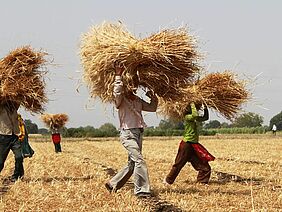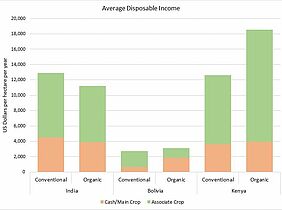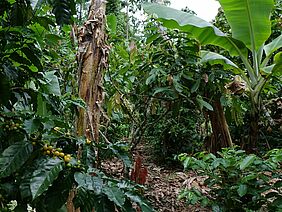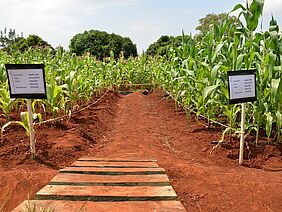(Frick, April 25, 2024) A newly published paper provides an alternate narrative for organic agriculture in the tropics. While organic production systems are often depicted as non-competitive in terms of generating disposable income and export-oriented with not enough focus on local needs, new data provides a different perspective.
The new paper is based on 12 years of data from four long-term experiments comparing conventional and organic farming systems across three continents. The paper shows that organic agriculture can generate disposable income for farmers that is equal to conventional agriculture. Farmers cultivate additional non-export crops for local consumption in rotation with cash crops (cacao in Bolivia, cotton in India, maize in Kenya). The contribution of these additional crops provides equal amounts of disposable income for farmers while at the same time providing important ecosystem services. Up until now, these non-export crops have been largely overlooked.
Additionally, the study highlights that crop diversification leads to more stable incomes and more varied food sources for farmers. “The emphasis should shift from a singular focus on main cash crops to a more comprehensive understanding that considers the entire spectrum of crops within a farming system over a longer period,” said Amritbir Riar, first author of the study and senior scientist at the Research Institute of Organic Agriculture FiBL.
The SysCom trials - Globally unique
The data presented in this paper was collected in the four trials of the SysCom project (Farming Systems Comparison in the Tropics). These long-term trials have been running for 17 years and are located in tropical zones on three continents: Africa, Asia, and South America. The cropping systems in all trials involve one main crop (cacao, cotton, and maize, respectively) and associated crops, which are managed under site-specific conventional farming and organic management systems. To obtain an overview of organic farming compared to conventional farming, the long-term experimental design is useful in assessing the performance of a whole system over time.
The long-term SysCom trials continue to provide novel and valuable insights into the performance and potential of organic agriculture in the tropics, relevant to stakeholders from farmers to policymakers.
Further information
FiBL contacts
- Amritbir Riar, Group Leader Resilient Cropping Systems, Department of International Cooperation, FiBL Switzerland
- Elsa Kanner, Group Project Communication, Department of Extension, Training, & Communication, FiBL Switzerland
Supporters/Donors
- Coop Sustainability Fund
- Liechtenstein Development Service (LED)
- Biovision
- Swiss Agency for Development and Cooperation (SDC)
Link
systems-comparison.fibl.org: Website of the SysCom project
References
Riar, A., Goldmann, E., Bautze, D., Rüegg, J., Bhullar, G.S., Adamtey, N., Schneider, M., Huber, B., Armengot, L. (2024) Farm gate profitability of organic and conventional farming systems in the tropics, International Journal of Agricultural Sustainability, 22:1, DOI: 10.1080/14735903.2024.2318933, download: https://www.tandfonline.com/doi/full/10.1080/14735903.2024.2318933







